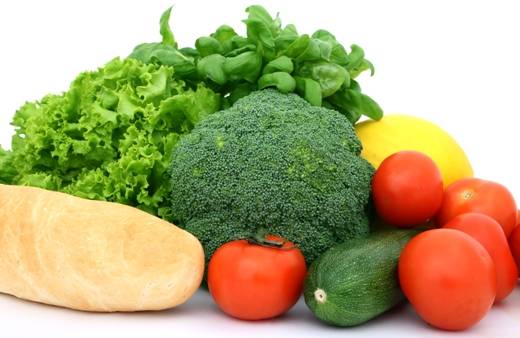Increased level of cholesterol in your body gives room to heart diseases such as high blood pressure, heart stroke etc. If you want to attain healthy and cholesterol-free body without consuming medicated drugs, having numerous side effects, begin working on your eating habits from today itself, because food eaten by you can bring sea difference in your health condition.
What is Cholesterol?
Cholesterol is a gluey substance found in your blood. It aids in the formation of cell membrane, vitamin D, bile acids, and several hormones, which play imperative roles in proper functioning of your body. Since cholesterol are kind of fats, neither do they get absorbed in your blood, nor are they carried by lipoprotein from one cell to another. Your body produces enough of cholesterol required to meet cholesterol needs of your body.
Types of Cholesterol
There are two types of lipoproteins working in your body namely LDL (Low density lipoprotein) and HDL (High density lipoprotein). While LDL exists in greater quantity in your body, HDL exists in meager quantity.
Surplus of LDL flowing in blood stream revs up your chances of getting clogged arteries. Since clogged arteries implies interrupted blood supply blood to heart and brain, it escalates your risk of getting heart and brain stroke. LDL is also known as sinister cholesterol which is meant to harm you.
Contrary to LDL, HDL doesn’t flow nearby your arteries and it fetches cholesterol back to liver. Since HDL washes out extra cholesterol from your body, it ensures healthy functioning of your heart and brain. Besides that, HDL comes under good cholesterol, so its diminished level peps up heart diseases and other troubles.
Connection Between Obesity and Heart Diseases
Though there are myriad factors accountable for high cholesterol level and heart diseases, but still, obesity is the supreme cause responsible for heart disease.
Overweight people are more susceptible to become victims of heart diseases because bulky bodies have higher number of triglycerides floating in their blood, which codense the level of HDL and elevate the level of LDL in their body. Besides obesity, smoking cigarette, consumption of alcohol, sedentary lifestyle etc. are other factors triggering triglycerides. If you want to steer clear from the impacts of elevated cholesterol, endeavor shedding unsolicited pounds from your body through diet and exercises.
What Foods You Should Avoid?
If you want to maintain balance between HDL and LDL, you shall weed out certain food items from your diet regime. These foods crop up the level of LDL in your body. You can beat the problem, shall you keep check on the consumption of these cholesterol enhancing foods.
Shun the consumption of foods containing hydrogenated or trans oil, refined sugar, foods rich in omega-3 fatty acids, and processed foods. Prefer refraining from animal foods such as meats, eggs, shellfish etc. Sellers of these foods often make false claims that these foods are zero in cholesterol which actually is misleading, because their consumption is more likely to make you suffer from heart diseases.
Importance of Workouts
Practice cardio workouts for minimum thirty minutes in a day. No matter how easy or intense workouts you practice, they shall be capable of increasing your heart rate. Brisk walking is the simplest kind of workout which suits people of almost all the age groups and gender. Workouts boost the immunity of your body and they make your body resilient. You might not see quick results, but they work behind the scene on your body. A fit and slender body not only looks good but it also works perfectly well.
Recommended Food Items
Let’s have a look at some of the food items which will maintain balance between HDL and LDL in your body.
Fish or Fish Oil Supplements
Consume fish or fish oil supplements for healthy heart. They have opulent content of omega-3 fatty acids which is healthy fat and is the natural requirement of your body. For obtaining omega-3 fatty acids, you can eat fishes such as sardines, herring, mackerel, salmon, halibut, lake trout etc.
However, since fish also contains unhealthy fats, either grill or bake the fish to strip off unwholesome fats, and escalate the nutritional value of fish. If you despise fish, you can go for fish oil supplements. If that too doesn’t sound good to you, you can incorporate canola oil or ground flax seed in your diet.
Nuts
Nuts such as almonds, hazelnuts, pecans, pistachio nuts, pine nuts walnuts etc. have high content of polyunsaturated fats. These nuts are nutrient-laden and uphold the health of your blood vessels. You can make them part of your daily diet and can have them in your snacks, or you can also mix them in your salad and cherish new and healthy flavor.
Fat Free Yogurt
Calcium and proteins are essential nutrients required to maintain adequate functioning of your heart. Consumption of fat free yogurt nourishes your body with both calcium and proteins. In addition to them, yogurt also contains Lactobacillus microorganisms which bring down your blood cholesterol level.
Fruits, Veggies and Oatmeal
Though consumption of all kinds of fruits and veggies provide some kind of benefits to your body, consumption of fruits and vegetables rich in beta carotene and vitamin C are specifically good for your body, because they keep check on the level of cholesterol in your body.
Fruits, vegetables, and oatmeal have opulent content of soluble fiber. After entering inside your body, soluble fiber soaks surplus LDL from your blood and shrinks the amount of LDL. Apples, prunes, kidney beans, pears etc. are some of the fruits having high density of soluble fiber.
Soy Products
Swap meat, cheese and other animal foods with soy products such as soy milk, tofu, soy flour, soy nuts, nuggets, breaded cutlets etc. Unlike animal foods which are loaded with saturated fat, soy products contain compound named isoflavones, which trim down LDL cholesterol in your body.
Onion and Garlic
Onion and garlic possesses incredible medicinal properties. Being influential in bringing down your LDL, they cut your risk of heart diseases. You can consume them either in raw form or can add them in your meals while cooking. Not only do they perk up the flavor of your meals, they also impart you numerous health benefits.

